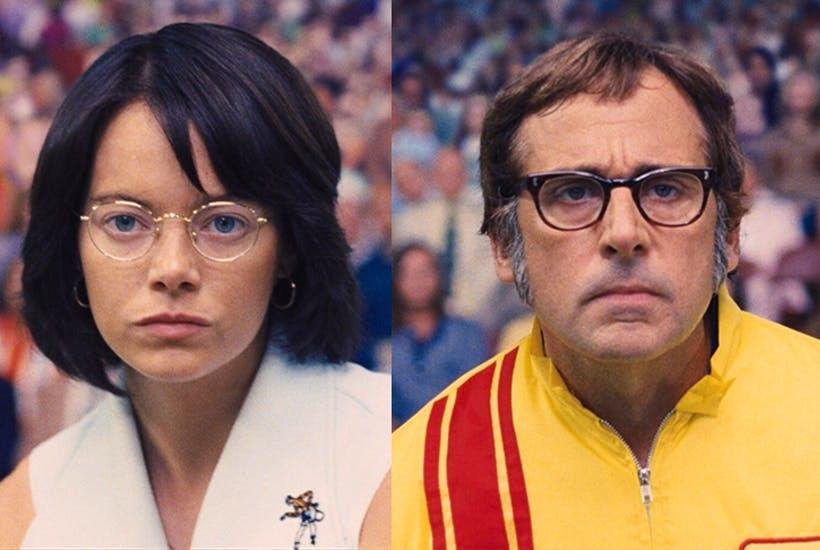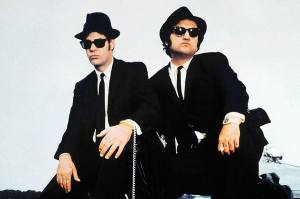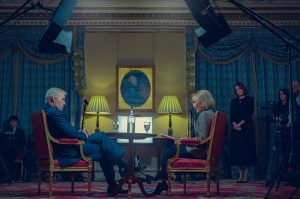Battle of the Sexes
recreates the famed, culture-changing 1973 tennis match between 55-year-old Bobby Riggs, a self-proclaimed chauvinist, and 29-year-old Billie Jean King, the world’s top female player who was out to liberate women and herself. (She was just discovering her true sexuality at that time.) Unless you happen to identify with Bobby — ‘Don’t get me wrong. I love women in the bedroom and in the kitchen, but these days they want to be everywhere!’ — this is certainly a great comeuppance film of the kind that will amply satisfy all your comeuppance needs. No complaints, comeuppance-wise. But it doesn’t run very deep, divides everyone into heroes and villains, and is afflicted by an underwhelming romance whereby a woman’s glasses are removed as she’s told, ‘Why, you are beautiful!’ Or words to that effect.
With a script by Simon Beaufoy (The Full Monty, Slumdog Millionaire), and directed by Jonathan Dayton and Valerie Faris (Little Miss Sunshine), the film starts with King (Emma Stone) at war with the head of the Association of Tennis Professionals, Jack Kramer (Bill Pullman). An out-and-out misogynist, he believes men deserve far more prize money even if women sell the same number of tickets because, if nothing else, ‘They have families to support.’ And when King launches her own women’s tour his parting remark is, ‘Well, we’ll miss your pretty faces.’ This all happens five minutes in, and already I have only one thing on my mind: comeuppance.
And then there is Bobby (Steve Carell). A former tennis champion — he won Wimbledon in 1939 and was the world’s top player for three years — he’s now a hustler and a gambler who’s been ejected from the marital home by his rich wife (a thankless role for Elisabeth Shue), lives in the Rolls-Royce he won as a bet, craves a return to the limelight, and sees his chance. He calls King and offers to play her. We could bill it, he suggests, ‘as the male chauvinist pig versus the hairy-legged feminist!’ But she declines, and hangs up, although not before adding pointedly: ‘I do shave my legs.’ So instead he thrashes Margaret Court, which means, he claims, ‘I have proved beyond a shadow of doubt that men are the superior animal.’ Of course, King has to play him now.
So that’s the nuts and bolts of it but there is rather more involved as King, who was married, embarks on an affair with the hairdresser (Andrea Riseborough) who will remove King’s glasses and tell her she is beautiful and all that. This not only bogs down the narrative, stopping it dead in some places — can we go back to the comeuppance now? — but also feels manufactured, while the main characters feel somehow incomplete. For instance, although this is a tennis film where the tennis is the least of it, because it’s actually a battle between two belief systems, the downside is that you don’t get any sense of King as an athlete and sportswoman. (Why does she never seem to practise?) Also, as King is all virtue, the more interesting character is Bobby, but even so you don’t ever feel you get under his skin in any way. Stone and Carell are both excellent, and well matched, but you can’t perform depth if it just isn’t there.
Still, the film is not unsuccessful, as it’s mostly entertaining enough, and if the gender politics seem oversimplified, there are reminders of some real-life commentaries — ‘Watch out, guys! There is no stopping this little lady!’ — plus we must remember that John McEnroe has been offering to play Serena Williams for the past 15 years, so shifting perceptions of women in sport still have some shifting to do. But, mostly, there is the final act, offering comeuppance aplenty, and that has to be the main thing. No question.


















